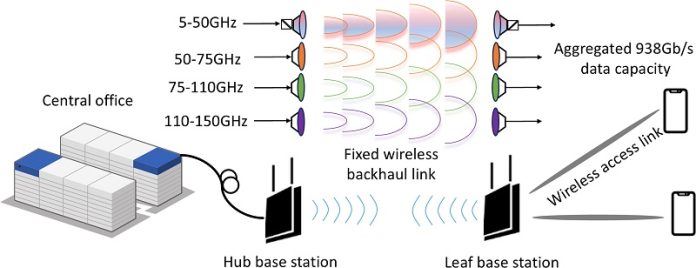
A team of engineers from University College London (UCL) has set a new world record for the fastest wireless data transmission.
They successfully sent data at an astonishing speed of 938 Gigabits per second (Gb/s), using a wide range of radio frequencies from 5 to 150 Gigahertz (GHz).
To put this in perspective, this speed is over 9,000 times faster than the average 5G download speed in the UK, which is currently around 100 Megabits per second (Mb/s).
This breakthrough could pave the way for much faster and more reliable wireless communication in the future.
Wireless networks today, like Wi-Fi and 5G, usually operate at low frequencies below 6 GHz. However, the increasing demand for data has caused congestion in these frequencies, limiting the speed at which information can be sent.
To solve this problem, UCL researchers used a combination of radio and optical technologies for the first time.
By transmitting data over a much wider frequency range, they managed to achieve record-breaking speeds. Their findings were published in the Journal of Lightwave Technology.
Dr. Zhixin Liu, a lead researcher on the project, explained that existing wireless communication systems are struggling to keep up with the growing demand for high-speed data.
The bottleneck occurs in the final few meters between the user and the fiber-optic network.
This new approach allows for a much faster and more reliable connection, which is essential as more people rely on wireless networks.
By using both advanced electronics and light-based technologies, the team managed to send data across a broader range of frequencies. This approach could revolutionize wireless networks, helping to meet future demand for speed and capacity.
This new technology could have a big impact on the future of Wi-Fi and mobile networks.
It may enable faster internet speeds for mobile phones, more reliable connections in crowded areas, and improve how we download and stream content. For instance, a two-hour 4K Ultra HD film, which takes about 19 minutes to download on a 5G network, could be downloaded in just 0.12 seconds using this new technology.
Though this achievement has only been tested in the lab, the team is working on creating a prototype for commercial testing. If successful, this technology could be available for everyday use within the next three to five years, marking a significant leap forward for wireless communication systems.
Source: University College London.


